“Let Romple Emwalu, who is to be ordained deacon, please come forward.” As soon as the deacon candidate answered, “Present,” the whole section of the church where Romple’s family were seated stood up and, with one voice, sang in Chuukese accompanied by a solemn dance. His father, who is a permanent deacon, led the singing and dancing. The song expresses the people’s joy, gratitude, and admiration for the grace of God. Romple explains that the song begins by quoting the passage from the first chapter of the prophet Jeremiah, “The word of the Lord came to me saying: Before I formed you in the womb I knew you; before you were born I sanctified you; I ordained a prophet to the nations.” The community proceeds to give praise to God when they sang:
We should be thankful to God for this day, that He has sanctified a person. We should be joyful and glorify His grace that he has chosen a prophet on this holy day.
This person, because of all the mysteriously glorified things God has done to him for our sake; we should call him blessed.
For all the wonderful things God has done on earth, let us rejoice and be glad, for God has shown His glory and grace on this very special day.
(Translation provided by Romple’s father)

Romple, who was standing at the back of the nave, started to move toward the front. He was accompanied by his mother and a few other members of his family. Tied around his waist is a rope woven out of coconut fibers symbolizing, among other things, the cord that once connected him to his mother while he was in the womb. As the scrutiny began, his mother untied the rope around Romple’s waist. When asked about her understanding of the symbolism of the gesture, Romple’s mother answered without hesitation that this meant a form of offering her son for the service of the church. This gesture indicated her free offering in the form of her son, Romple.
These simple elements of the Chuukese culture woven into the Roman Rite created what seems to be the clearest liturgical expression of what happens during the ordination of a deacon. In the same way that the first deacons were called and presented from within the community of disciples (Acts 6:2-6), the new deacon was presented by his family processing from the back of the section where they were seated.
In a symbolic manner, his family releases the candidate in order to accord him the freedom to answer the Lord’s call. Bishop Larry Silva, the ordaining bishop of the Diocese of Honolulu, recognized the fact that the ties with the family will remain. Yet it recognizes the fact that the ties that are being formed are not just with his family anymore but with the Lord and His people. Bishop Silva added that “the untying symbolizes that he was chosen before he was born.” There is a bond that predates the familial relations. His family released him so that he can “be bound more tightly by the invisible ropes of God’s love.” In turn, the deacon becomes an instrument of God’s providence and care to others by taking care of their needs. He becomes an instrument of God’s peace as he summons the people to “Go in peace” at the end of the liturgy. He becomes an instrument of love as he too experiences the love that binds him to God.

From someone who does not know much about the Chuukese culture, one thing was clear throughout the evening of celebrations: the communal orientation of the Micronesian cultures permeated the whole event. Whether they were Chuuk, Hawaiian, Tongan, or Samoan, they knew that they ultimately belong to one community – the family of God.
Photos Courtesy of Dann Ebina (All Rights Reserved).
